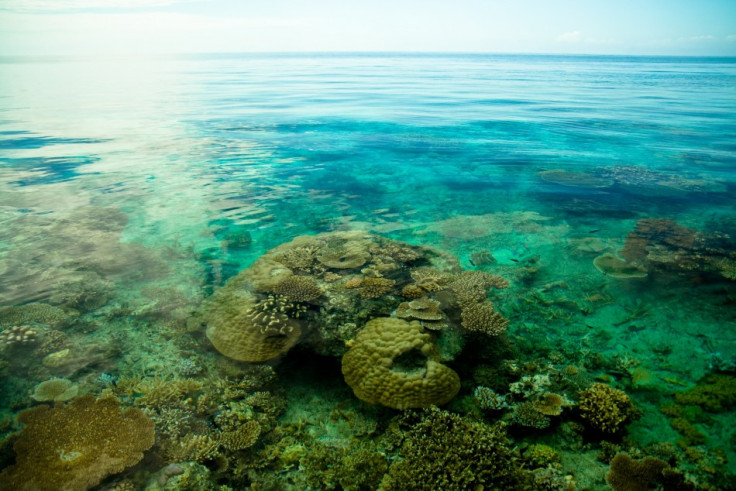Astounding scale and extent of ocean warming on entire ecosystems revealed in IUCN report
Report shows wide-ranging effects on fish stocks, crop yields, extreme weather and risks of water-borne diseases.

The rise in global temperatures is, by now, a well-recognised phenomenon, however, less publicity is given to the interlinked problem of warming oceans, despite the myriad ways humans rely on them. According to one of the most comprehensive reviews yet on the issue, ocean warming is already affecting humans in direct ways, with implications for fish stocks, crop yields, the occurrence of extreme weather events and the risks of water-borne diseases.
The report, conducted by 80 scientists from 12 countries for the International Union for Conservation of Nature (ICUN), was launched at the IUCN World Conservation Congress which is currently underway in Hawaii.
The study reviews the effects of ocean warming on species, ecosystems and on the benefits that the oceans provide to humans, concluding that there have been observable impacts on all kinds of marine life, from microorganisms to mammals, which are only likely to increase if warming continues at the same pace.
"Ocean warming is one of this generation's greatest hidden challenges – and one for which we are completely unprepared," said IUCN director general Inger Andersen. "The only way to preserve the rich diversity of marine life, and to safeguard the protection and resources the ocean provides us with, is to cut greenhouse gas emissions rapidly and substantially."
The review shows that warming is already affecting ecosystems from polar to tropical regions, driving entire groups of species like plankton, jellyfish, turtles and seabirds up to 10 degrees of latitude towards the poles, leading to the loss of breeding grounds, as well as affecting the breeding success of marine mammals.
The damage and disruption to fish habitats is causing certain species to move to cooler waters, meaning stocks are being depleted in tropical regions, leading to reduced catches.
For example, in the Western Indian Ocean, warming has destroyed vast sections of coral reef, which many fish species rely on, causing their numbers to fall. These losses are further worsened by overfishing and destructive fishing techniques. Meanwhile, in south-east Asia, marine fishery harvests are expected to fall by between 10% and 30% in comparison to the period 1970-2000 – under a high greenhouse gas emission scenario – due to the predicted change in distributions of fish species across the oceans.
This will have significant implications for those who rely on fishing for their income in these areas. In addition, the removal of smaller prey species from ocean ecosystems can have a negative knock-on effect on larger predators further up the food chain.
"Most of the heat from human-induced warming since the 1970s – a staggering 93% – has been absorbed by the ocean, which acts as a buffer against climate change, but this comes at a price. We were astounded by the scale and extent of ocean warming effects on entire ecosystems made clear by this report," said Dan Laffoley, marine vice chair of the World Commission on Protected Areas at IUCN, and one of the lead authors.
Also included in the report is evidence that ocean warming is causing an increase in disease among plant and animal populations. Warmer waters can also have an impact on human health because it allows pathogens – cholera for example – to spread more easily.
Ocean warming can also affect the weather, with a variety of consequences. The number of hurricanes, for example, has increased at a rate of around 25-30 per cent for every 1 degree Celsius increase in warming, according to the report. It has also led to more rainfall in mid-latitudes and monsoon regions, as well as less rain in various sub-tropical regions. These shifts in weather patterns will have an impact on crop yields in important food-producing regions like North America and India, the study says.
Finally, the role that the oceans and their ecosystems play in absorbing large amounts of carbon dioxide and sheltering us from storms and erosion is also likely to be diminished as they warm.
The report puts forward recommendations including: recognising the severity of ocean warming impacts on ecosystems and the benefits they provide to humans, better evaluating the social economic risks associated with warming oceans, expanding marine protection and cutting greenhouse gas emissions rapidly and dramatically.
The conservation of the oceans is one of the main issues being discussed at the IUCN Congress where members will vote on motions regarding the protection of certain regions, among other things.
The IUCN is an NGO which tries to influence the actions of governments and businesses in line with its mission to "influence, encourage and assist societies throughout the world to conserve nature and to ensure that any use of natural resources is equitable and ecologically sustainable."
© Copyright IBTimes 2025. All rights reserved.





















